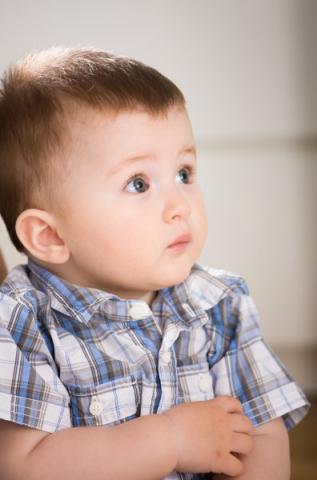Ensure your family is protected from whooping cough

The Public Health Agency (PHA) is urging pregnant women and the parents of young children to ensure whooping cough (pertussis) immunisations are fully up to date, following a rise in the numbers of cases during 2012.
While uptake levels for childhood vaccines are very high in Northern Ireland, there has been a rise in the number of whooping cough cases this year. There have been 221 confirmed cases up to 30 September this year, with 30 of these being reported in the last month alone. This compares with just 15 confirmed cases in the whole of 2011. Of the 221 cases, 137 have been reported in children.
The increase in whooping cough incidents is in line with England, Wales and Scotland, where cases of the disease reported to the Health Protection Agency (HPA) have also shown sharp rises. Increases in levels of the illness are seen every three to four years, however, the numbers this year are the highest for about twenty years.
At the end of September, the Health Minister announced that pregnant women would be offered the whooping cough vaccination to protect their newborn babies who are not usually vaccinated until between two and four months. The introduction of the vaccine programme in pregnant women will help to boost the short term immunity passed on by women to their babies while they are still in the womb.
Dr Richard Smithson, Consultant in Health Protection, PHA, said: “The vaccination programme for women who are 28 weeks pregnant or more, has now begun. This will be coordinated through GPs who will contact eligible women.
“Whooping cough is a disease that can cause long bouts of coughing and choking, which can make it hard to breathe. It can be very serious for young children, and even fatal for babies under one year old.
“Newborn babies are likely to have little or no protection against whooping cough until they have been fully vaccinated themselves. The vaccination of pregnant mothers will help to protect children from birth until they are old enough to be vaccinated themselves, as antibodies passed from the pregnant mother to her unborn child should provide some protection to the baby in the first few weeks of life. Vaccination of babies is routinely given at two, three and four months of age, with a booster administered three years later.
“The vaccine which will be given to expectant mothers through this programme, called Repevax®, will also provide protection against diphtheria, tetanus and polio, in addition to whooping cough. There is no evidence to suggest that the use of this vaccine during pregnancy is unsafe for either the expectant mother or their unborn baby. The vaccine is not live and cannot cause whooping cough. There may be some mild side effects from this vaccination, such as swelling, redness or tenderness, although serious side effects are extremely rare.”
All parents should ensure their children are vaccinated against whooping cough on time, even babies of women who’ve had the vaccine in pregnancy this is to continue their baby’s protection through childhood. Parents should also be alert to the signs and symptoms of whooping cough which include severe coughing fits accompanied by the characteristic “whoop” sound in young children, and by a prolonged cough in older children or adults. It is also advisable to keep babies away from anyone showing the signs and symptoms of whooping cough.
For further information on whooping cough and the vaccination programme, please see the PHA guidance at www.publichealth.hscni.net/whooping-cough or ask your GP or midwife.
Contact the PHA Communications on (028) 9055 3663
For further information on whooping cough and the vaccination programme, please visit the Public Health Agency website at www.publichealth.hscni.net/whooping-cough or www.nidirect.gov.uk/whooping
